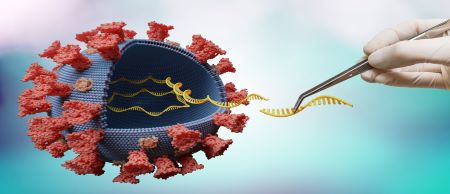Research on the genetic diversity of the SARS-CoV-2 coronavirus in Portugal

The spread of the new SARS-CoV-2 coronavirus (COVID-19) in Portugal is being monitored by the National Institute of Health Dr. Ricardo Jorge, I.P. (INSA), through analysis of the virus's genome. To date, the data collected has enabled the analysis of 1,550 SARS-CoV-2 genomes obtained from positive virus samples collected or received by INSA. This study is part of one of 121 projects supported by FCT under the special Research 4 COVID-19 support program, aimed at rapid implementation projects for innovative solutions to respond to the COVID-19 pandemic.
The main objectives of the study are to identify SARS-CoV-2 mutation profiles, monitor transmission chains, and identify new introductions of the virus in Portugal; predict the onset of community transmission and assess the impact of containment measures; determine possible associations between genetic (mutational) profiles of the virus and certain clinical manifestations (e.g., different degrees of COVID-19 severity); and to improve knowledge of the genetic variability of this new virus on a global scale, which will lead to the better development of prophylactic (vaccines) and therapeutic measures. The data generated by the Ricardo Jorge Institute was immediately shared internationally through theNextstrainonline platform and theGISAID repository.
Using next-generation sequencing technologies and bioinformatic analysis via theINSaFLU online platform, INSA is able to identify the complete genome sequence. This data enables the development of an interactive panel (see here) that reflects an integrative analysis of the genetic diversity (phylogeny) and geotemporal dispersion of the SARS-CoV-2 virus in Portugal, carried out using theNextstrainproject tools (Hadfield et al. 2018, Bioinformatics).
All information about the development of this study is available on the page dedicated to the project.